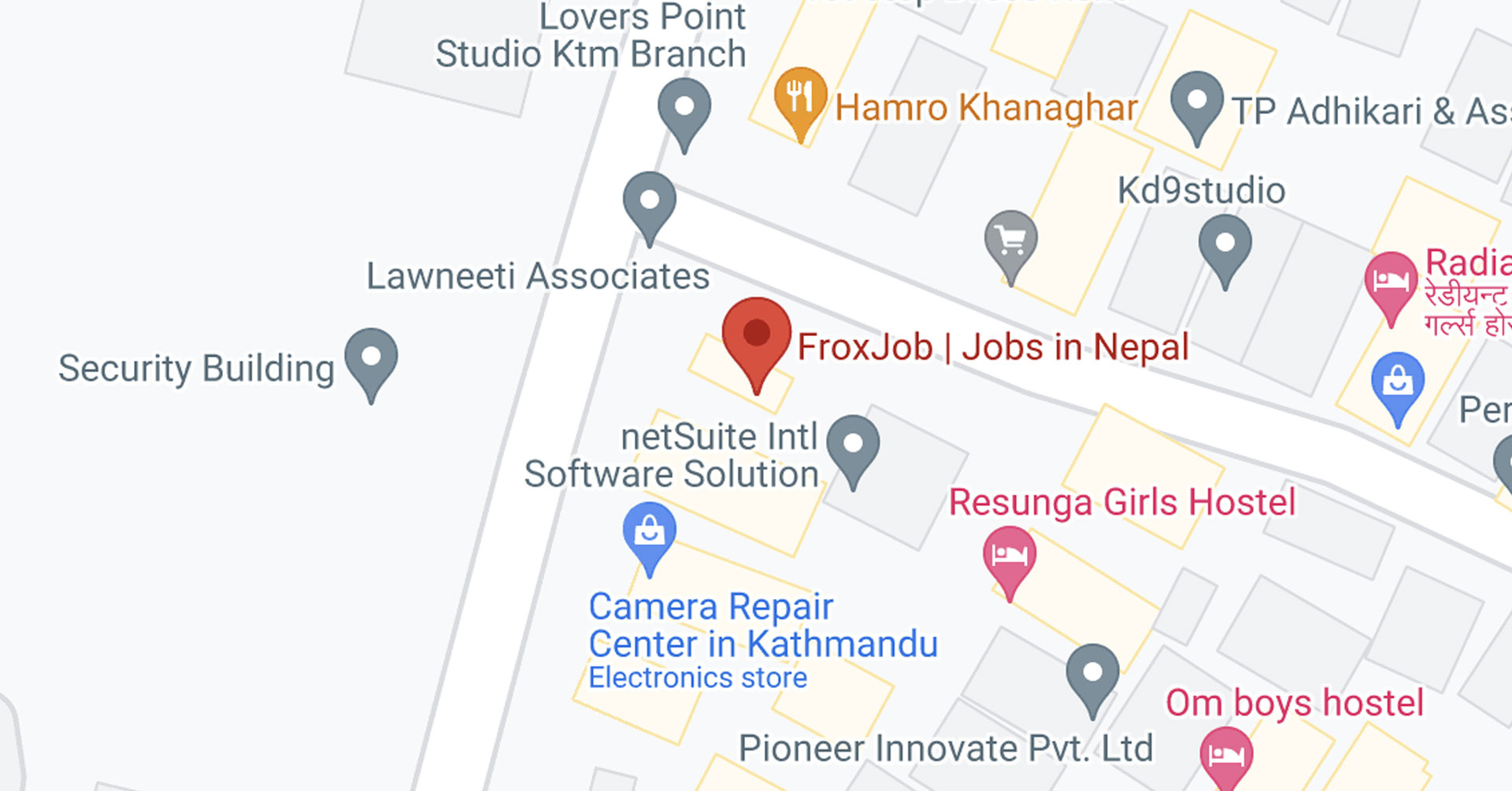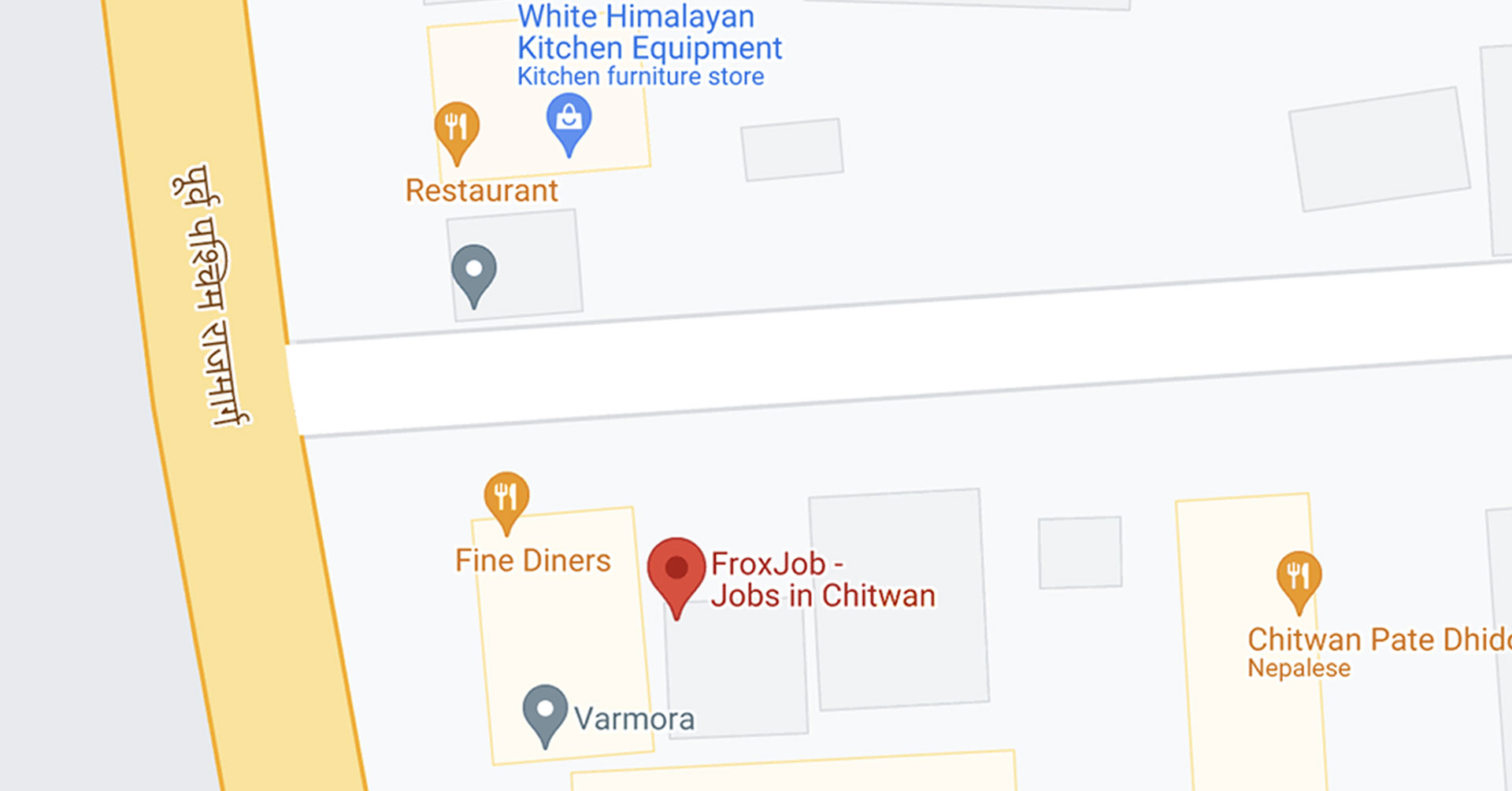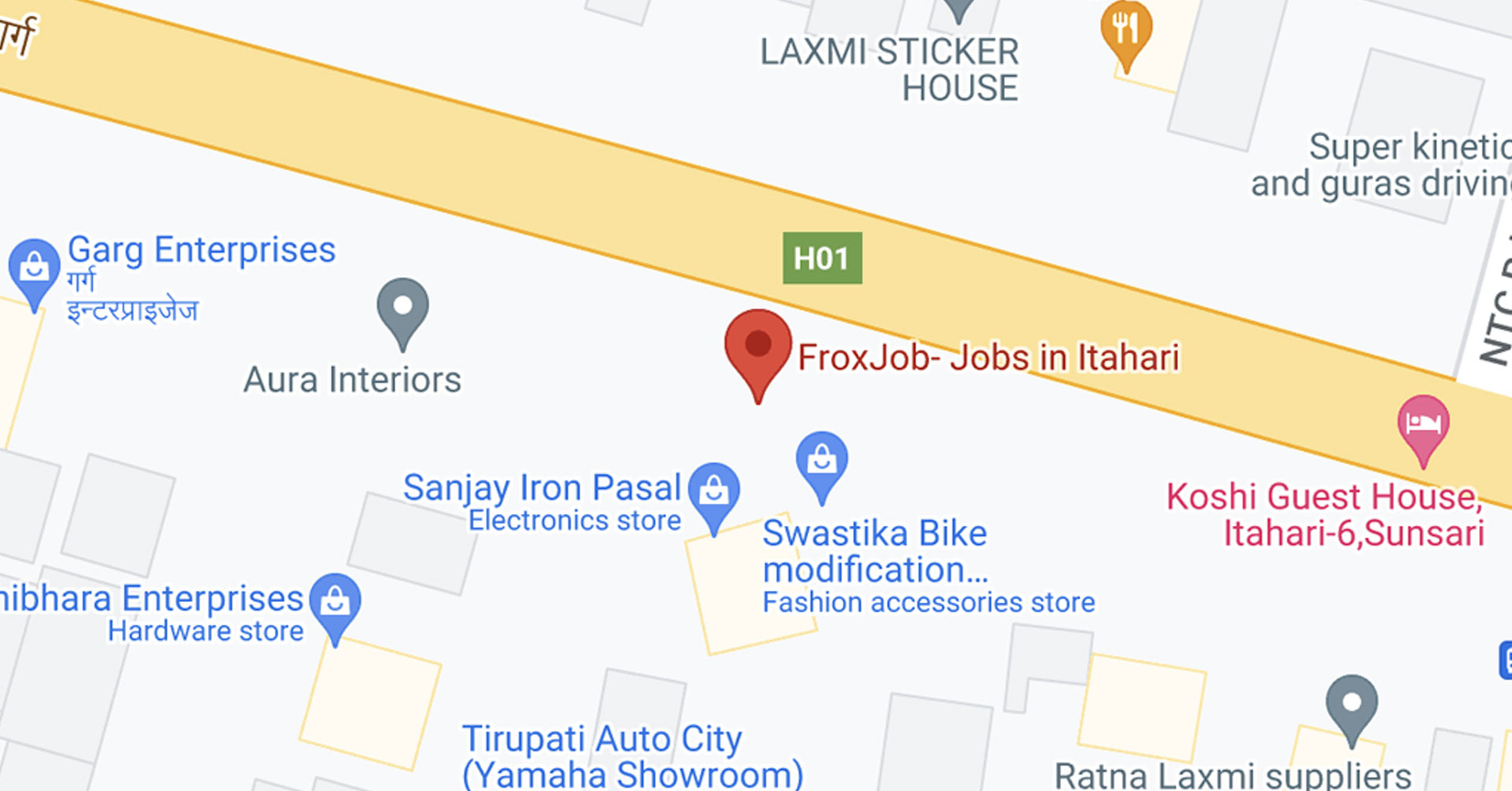Overcoming Job Search Challenges: Advice for Job Seekers in Nepal

Overcoming Job Search Challenges: A Comprehensive Guide for Job Seekers in Nepal
The job market in Nepal presents unique opportunities and challenges for professionals seeking meaningful employment. As the country continues to develop its economy and integrate with global markets, job seekers face both traditional obstacles and emerging complexities in their career pursuits. Understanding these challenges and developing effective strategies to overcome them is essential for success in today's competitive landscape.
Common Challenges Faced by Job Seekers
Limited Professional Networks
One of the most significant obstacles for job seekers in Nepal is the lack of robust professional networks. Many positions are filled through personal connections and referrals rather than open applications.
Networking Challenges Include:
- Limited access to industry professionals
- Lack of structured networking opportunities
- Geographic concentration of professionals in urban areas
- Cultural barriers to approaching senior professionals
- Insufficient mentorship programs
- Limited alumni networks from educational institutions
Building meaningful professional relationships requires time and strategic effort. Job seekers often struggle with knowing where to start networking or how to maintain relationships effectively over time.
Skills Gap and Qualification Mismatch
The rapid evolution of industry requirements has created a notable skills gap in many sectors. Employers frequently seek candidates with specific technical competencies, certifications, or experience with modern tools and methodologies.
Common Skills Gaps:
- Digital literacy and computer proficiency
- Advanced English communication skills
- Project management capabilities
- Data analysis and interpretation
- Customer relationship management
- Modern software applications
- International business practices
- Industry-specific certifications
Geographic Limitations
Employment opportunities in Nepal are heavily concentrated in major urban centers, particularly Kathmandu Valley and Pokhara and other major cities.
Geographic Challenges:
- Limited job opportunities in rural areas
- High cost of living in employment hubs
- Transportation and commuting difficulties
- Family and social obligations preventing relocation
- Limited infrastructure in remote areas
- Unequal access to training and development resources
Language and Communication Barriers
Many multinational companies and modern enterprises require strong English communication skills alongside local language proficiency.
Communication Requirements:
- Fluent English speaking and writing abilities
- Professional email communication skills
- Presentation and public speaking confidence
- Cross-cultural communication competence
- Technical writing capabilities
- Social media and digital communication proficiency
Strategic Approaches to Overcome Job Search Obstacles
Building and Leveraging Professional Networks
Effective Networking Strategies:
- Attend industry conferences and seminars regularly
- Join professional associations in your field
- Participate in alumni events and reunions
- Engage in community volunteer activities
- Utilize social media platforms professionally
- Seek informational interviews with industry leaders
- Participate in online forums and discussion groups
- Attend job fairs and career development events
Digital Networking Approaches:
- Create a compelling LinkedIn profile
- Share industry-relevant content regularly
- Comment thoughtfully on professional posts
- Connect with colleagues and industry peers
- Join relevant LinkedIn groups and discussions
- Follow companies and industry leaders
- Engage with recruiter content and posts
Addressing Skills Development Proactively
Skill Development Priorities:
- Identify market-demanded technical skills
- Pursue relevant online certifications
- Develop soft skills and emotional intelligence
- Improve English language proficiency
- Learn industry-standard software applications
- Build project management capabilities
- Enhance digital marketing knowledge
- Strengthen analytical and problem-solving abilities
Learning Resources and Platforms:
- Online learning platforms (Coursera, edX, Udemy)
- Professional certification programs
- Local training institutes and workshops
- Industry-specific bootcamps
- Government-sponsored skill development programs
- International exchange and scholarship opportunities
- Mentorship programs and apprenticeships
Optimizing Job Search Strategies
Multi-Channel Job Search Approach:
- Utilize online job portals effectively
- Network through personal and professional contacts
- Apply directly to target companies
- Work with recruitment agencies and headhunters
- Explore freelance and contract opportunities
- Consider international remote work options
- Investigate government job opportunities
- Pursue entrepreneurship and startup possibilities
Application Optimization Techniques:
- Customize resumes for each application
- Write compelling cover letters
- Highlight relevant achievements and results
- Use industry-specific keywords appropriately
- Demonstrate cultural fit and company knowledge
- Provide specific examples of problem-solving
- Include quantifiable accomplishments
- Maintain consistent professional branding
Sector-Specific Opportunities and Strategies
Information Technology and Digital Services
The IT sector in Nepal has experienced remarkable growth, creating opportunities for software developers, digital marketers, data analysts, and cybersecurity professionals.
IT Sector Opportunities:
- Software development and programming
- Web design and digital marketing
- Data science and analytics
- Cybersecurity and network administration
- Mobile application development
- E-commerce and digital payment systems
- Cloud computing and infrastructure management
- Artificial intelligence and machine learning
Success Strategies for IT Professionals:
- Build a strong portfolio of projects
- Contribute to open-source initiatives
- Stay updated with emerging technologies
- Pursue international certifications
- Develop both technical and business skills
- Network with global IT communities
- Consider remote work opportunities
Tourism and Hospitality
Despite periodic challenges, tourism remains a vital sector of Nepal's economy, offering diverse career paths.
Tourism Industry Roles:
- Hotel and restaurant management
- Adventure tourism and trekking guides
- Cultural heritage and museum work
- Travel planning and coordination
- Hospitality training and education
- Sustainable tourism development
- Digital marketing for tourism businesses
Industry-Specific Preparation:
- Develop multilingual communication skills
- Gain cultural awareness and sensitivity
- Build customer service excellence
- Understand safety and emergency procedures
- Learn about Nepal's cultural and natural heritage
- Develop crisis management capabilities
Banking and Financial Services
Nepal's financial sector continues to expand with the growth of commercial banks, microfinance institutions, and insurance companies.
Financial Sector Opportunities:
- Commercial banking operations
- Microfinance and rural banking
- Insurance and risk management
- Investment advisory services
- Digital payment systems
- Financial technology development
- Regulatory compliance and audit
Professional Development Focus:
- Pursue banking and finance certifications
- Understand local and international regulations
- Develop analytical and mathematical skills
- Build customer relationship management abilities
- Learn about digital banking technologies
- Gain experience with financial software systems
Healthcare and Social Services
Growing awareness of healthcare needs and social development requirements creates opportunities for medical professionals and social workers.
Healthcare Sector Growth Areas:
- Primary healthcare and community medicine
- Mental health and counseling services
- Public health and epidemiology
- Healthcare administration and management
- Medical technology and equipment
- Pharmaceutical and biotechnology research
- Telemedicine and digital health solutions
Practical Implementation Strategies
Resume and Application Excellence
Resume Optimization Elements:
- Clear, professional formatting and layout
- Relevant keywords for applicant tracking systems
- Quantified achievements and impact statements
- Industry-specific terminology and language
- Educational credentials and certifications
- Volunteer experience and community involvement
- Language proficiencies and technical skills
- Professional references and recommendations
Cover Letter Best Practices:
- Research company background and values thoroughly
- Address specific hiring manager when possible
- Demonstrate knowledge of company challenges and opportunities
- Explain how your skills address their needs
- Show enthusiasm for the role and organization
- Maintain professional tone while showing personality
- Include specific examples of relevant achievements
Interview Preparation and Performance
Comprehensive Interview Preparation:
- Research company history, mission, and recent developments
- Understand the job description and requirements thoroughly
- Prepare specific examples using the STAR method
- Practice responses to common behavioral questions
- Develop thoughtful questions about the role and company
- Understand industry trends and challenges
- Prepare for technical assessments when relevant
- Plan appropriate professional attire
During the Interview:
- Arrive punctually and well-prepared
- Demonstrate active listening and engagement
- Provide specific examples and concrete evidence
- Show enthusiasm and genuine interest
- Ask insightful questions about the role
- Discuss how you can contribute to company goals
- Maintain professional demeanor throughout
- Follow up appropriately after the interview
Salary Negotiation and Career Planning
Compensation Research and Strategy:
- Research industry salary standards and ranges
- Consider total compensation including benefits
- Understand company salary structures and policies
- Prepare justification for salary expectations
- Consider non-monetary benefits and opportunities
- Evaluate long-term career advancement potential
- Assess work-life balance and company culture
- Compare offers from multiple organizations
Leveraging Technology and Digital Platforms
Digital Job Search Tools:
- Professional networking platforms (LinkedIn, Facebook groups)
- Industry-specific job boards and career sites
- Company websites and career pages
- Government employment portals
- International job search platforms
- Mobile applications for job searching
- Video interviewing and assessment platforms
- Portfolio and personal website development
Building Digital Professional Presence:
- Create comprehensive LinkedIn profiles
- Develop personal websites or portfolios
- Maintain professional social media accounts
- Share industry insights and thought leadership
- Engage with relevant online communities
- Showcase work samples and achievements
- Build consistent personal branding across platforms
Overcoming Psychological Barriers and Maintaining Motivation
Job searching can be emotionally challenging, particularly during extended periods without positive responses. Maintaining mental health and motivation requires developing effective coping strategies.
Motivation Maintenance Strategies:
- Set realistic and achievable goals
- Celebrate small victories and progress
- Maintain regular exercise and healthy habits
- Seek support from family and friends
- Join job seeker support groups
- Practice stress management techniques
- Maintain perspective on temporary setbacks
- Focus on continuous learning and improvement
Building Resilience:
- Develop thick skin for rejection and silence
- Learn from feedback and criticism constructively
- Maintain confidence in your abilities and worth
- Stay flexible and open to unexpected opportunities
- Build multiple income streams when possible
- Maintain financial stability during job search
- Keep long-term career goals in perspective
Future Outlook and Emerging Opportunities
Nepal's economy continues to evolve with infrastructure development, technological advancement, and increasing integration with regional and global markets. These changes create new categories of employment while transforming traditional roles.
Emerging Sectors and Opportunities:
- Renewable energy and hydropower development
- Digital transformation and e-governance
- Sustainable agriculture and food technology
- Educational technology and online learning
- Healthcare technology and telemedicine
- Financial technology and digital payments
- Environmental conservation and climate change
- Social entrepreneurship and impact investing
Preparation for Future Opportunities:
- Stay informed about government development plans
- Monitor international development projects
- Understand emerging technology trends
- Develop adaptability and learning agility
- Build cross-functional skill sets
- Maintain awareness of global market trends
- Consider entrepreneurship and innovation opportunities
- Invest in continuous professional development
Conclusion
The job search journey in Nepal requires patience, persistence, and strategic thinking. Success depends on combining traditional relationship-building approaches with modern professional practices, creating a balanced strategy that leverages both cultural strengths and contemporary opportunities.
By understanding market realities, developing relevant skills, building strong networks, and maintaining professional standards, job seekers can successfully navigate challenges and build rewarding careers. The key lies in remaining adaptable, continuously learning, and approaching the job search process with both determination and realistic expectations.
The evolving economic landscape of Nepal offers numerous opportunities for those willing to invest in their professional development and approach their career search strategically. With proper preparation and persistent effort, job seekers can overcome current challenges and build successful, fulfilling careers that contribute to both personal growth and national development.





